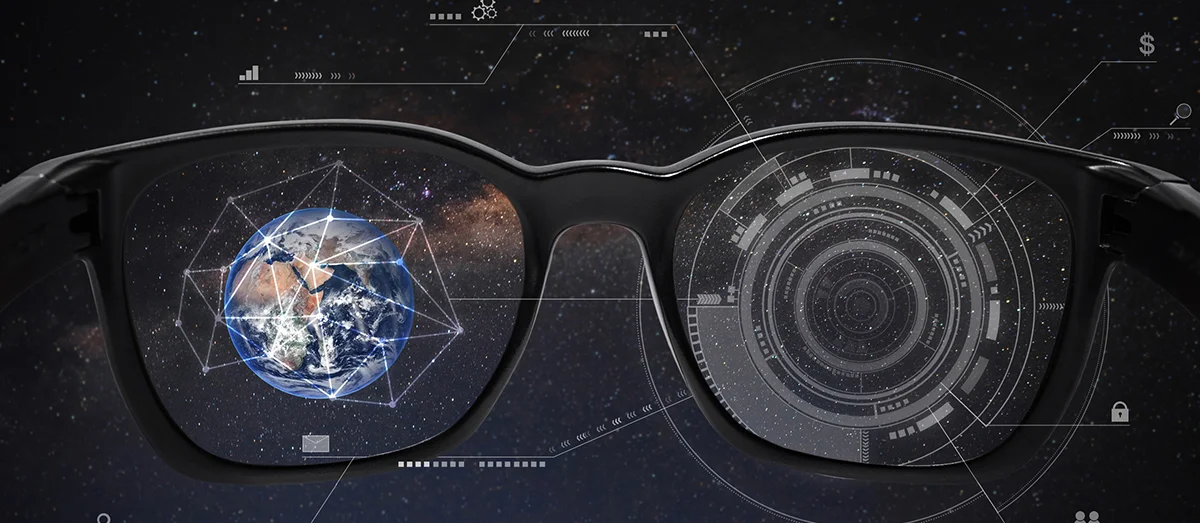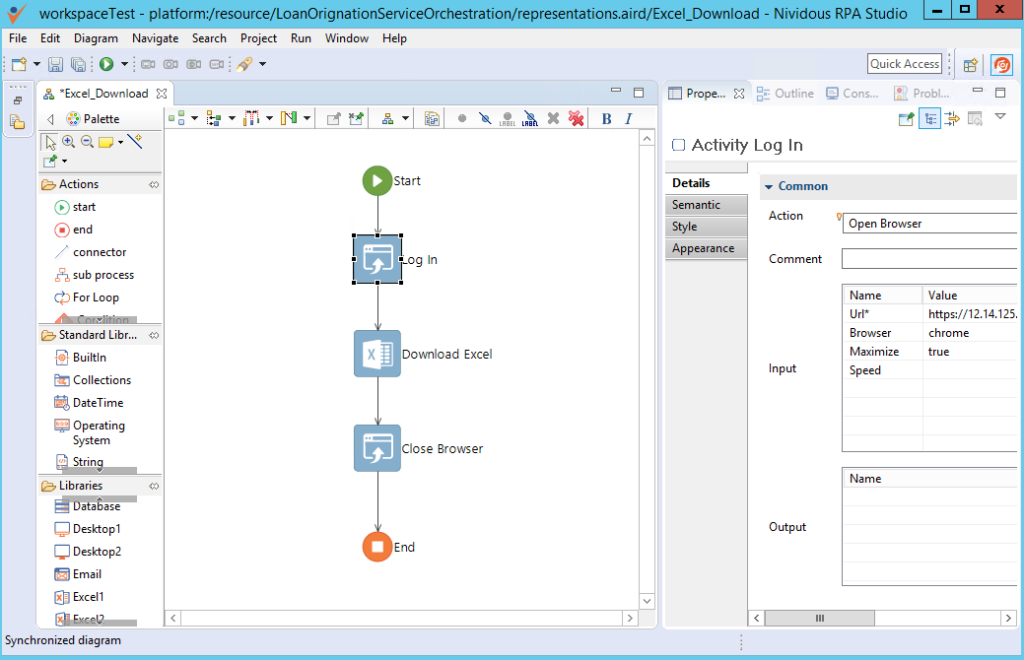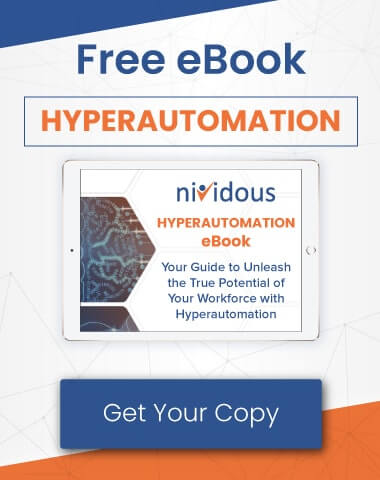Artificial Intelligence (AI) lets machines handle a lot of workplace tasks that we humans used to do—but, headlines to the contrary, AI probably isn’t coming for your job. The fact is, AI-powered automation is much better at working with human employees than instead of them. When AI supports human workers—helping them to make smarter decisions, complete tasks faster, and focus on meaningful work—it isn’t just artificial intelligence. It is augmented intelligence.
The difference between the two is subtle but distinct: Both terms refer to entirely different subjects of intelligence. In classic AI, it’s the machine intelligence that’s artificial. In augmented intelligence, it’s primarily the human intelligence that gets augmented. (Actually, the AI gets better with human help, too, but we’ll discuss that detail a bit later.)
Augmented Intelligence According To Gartner®“Augmented intelligence is a design pattern for a human-centered partnership model of people and artificial intelligence (AI) working together to enhance cognitive performance, including learning, decision making and new experiences.”1 |
Augmented intelligence isn’t some future tech; it’s available now. In fact, if you use AI to automate workplace processes at your business, you’re probably using augmented intelligence already.

Ready to Transform Your Business with AI, NLP, and Automation?
Watch our on-demand webinar and discover how AI, NLP, and advanced cutting-edge automation technologies can supercharge your growth, streamline processes, and reduce costs.
6 Examples Of Augmented Intelligence In Today’s Workplaces
Augmented intelligence takes many different forms, but here are some common examples for workplaces that use documents and data (which is just about every business that’s thriving today!).
1. Intelligent Document Processing (IDP)
Bills of lading, letters of credit, purchase orders, service requests: Businesses run on documents. Intelligent Document Processing takes the relevant data from these documents, routes it through digital systems, and processes the content to achieve business goals. That’s only possible with AI like Computer Vision (CV), Machine Learning (ML), and Natural Language Processing (NLP). (You may remember IDP from previous blog posts; learn more about it here.)
But in many cases, the AI behind IDP is augmented intelligence, too—wherever it helps a human complete some task or process. An IDP platform might deliver documents to managers for authorization. It might condense the data into reports that bring insight to human decision-makers (more on that in number 6 on this list). Or it might give human experts the chance to train the system for continually improving performance—which brings us to our next item.
2. Document Maker-Checkers
Remember that both human and machine intelligence get better through augmented intelligence systems. A document maker-checker in an IDP platform allows humans to guide the ML process, improving AI for full-circle augmented intelligence.
The Nividous maker-checker presents users with a split-screen interface. On one side is the original document. On the other are the results of the AI’s data extraction. Users can annotate data points and correct any mistakes—and the AI learns from every correction, getting better over time. In other words, artificial intelligence gets augmented; that’s what we mean by augmented AI, best understood as a subset of general augmented intelligence.
3. AI Chatbots And Intelligent Voice Assistants (IVA)
Natural language processing AI creates opportunities to automate customer service itself. Your chatbot may use NLP to understand a wide variety of phrasings, responding with the most helpful answer in the database. It might even use Natural Language Generation (NLG) to come up with an original response. The same is true for voicebots like IVAs, which free us from the frustrating touch-tone menus of yesterday’s automated call centers.
At their best, these conversational AI systems are augmented intelligence through and through. They may send human agents transcripts of conversations thus far, preparing them to be helpful prior to escalating the call. They may pre-authorize callers, app users, and site visitors before bringing in the human agent. They may identify the right department to handle a specific request. All these things help human customer service agents work smarter, faster, and better—and they’re all examples of augmented intelligence at work.
4. Predictive Analytics
Machine learning models are particularly good at spotting patterns in large data sets. Predictive analytics platforms use this capability to project likely future outcomes. Increasingly, businesses are using this AI for everything from spotting credit card fraud to calculating insurance risk.
The AI predicts risk and opportunity, allowing human decision-makers to evaluate the best course of action. It’s an example of turning data into insight—and of human-AI collaboration for stronger business choices. In other words, it is augmented intelligence.
5. Attended Smart Robotic Process Automation (RPA) Bots
Robotic Process Automation (RPA) uses special software, usually called bots, to operate applications through user interfaces. These bots automate routine data-handling tasks, freeing human workers to focus on higher-value work. Some bots operate automatically; these are unattended RPA bots. Others only launch operations when triggered; these are attended RPA bots. And either type of RPA bot may use AI technology to handle more complex tasks.
An RPA bot that’s both attended and enhanced with AI is a form of augmented intelligence. For example, an insurance agent onboarding a new customer may trigger an attended RPA bot to collect data from customer documents, using intelligent CV technology. The bot may then verify the details, reducing errors and detecting potential fraud; together, the human agent and the smart RPA bot create a better customer experience and stronger outcomes for the business at once.
6. Automated Reporting
We’ve discussed NLP and NLG, two powerful language-based AI technologies. Along with the data extraction available with IDP processes, this AI can auto-generate reports to bring mission-critical information to decision-makers when they need it most. Like predictive analytics, automated reporting is a business insight solution that helps the people in charge of enterprises make smarter choices faster.
That business insight may be the key benefit of augmented intelligence—but this technology can also transform business operations by automating core processes from beginning to end, with full participation from both people and AI components.
Augmented Intelligence In End-To-End Process Automation
Even with advanced digital technologies like AI-enhanced RPA, most workplace processes require human workers. An RPA bot may handle one task within the process, and a human the next.
To truly automate the process from start to finish, then, you need a platform that can orchestrate work between people and their digital systems. Augmented intelligence works within a broader Business Process Management (BPM) system to achieve full end-to-end automation for entire business processes. Here’s what we mean:
- The Nividous platform integrates with all your enterprise software platforms, including cloud-based Software-as-a-Service (SaaS) applications.
- It uses RPA bots to complete some tasks, while assigning and tracking the tasks humans perform.
- The platform ties all of these steps together into an end-to-end process through its BPM interface, a single-pane-of-glass experience that manages every step of the workflow.
- Integrated analytics report valuable performance data along the way.
With Nividous BPM managing work, humans and RPA bots operate hand-in-hand to complete core business processes more efficiently than ever—and with far fewer errors in the data. That’s what we mean by end-to-end process automation, which, with AI components, becomes full-on intelligent automation.
We could just as easily call it augmented intelligence. The fact is, both humans and AI systems achieve greater business benefits—including bottom-line indicators like efficiency, productivity, and profitability—when they each contribute their strengths to a unified business process. The Nividous platform is the framework that makes this possible.
Augmented intelligence leads to smarter digital automation.
See how you can achieve smarter automation on the Nividous platform. Sign up for a free, personalized demo.
1 Gartner IT Glossary, “Augmented Intelligence,” 30 December 2021. [https://www.gartner.com/en/information-technology/glossary/augmented-intelligence].
GARTNER is a registered trademark and service mark of Gartner, Inc. and/or its affiliates in the U.S. and internationally and is used herein with permission. All rights reserved.






